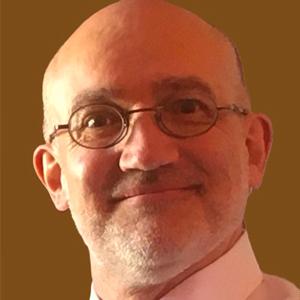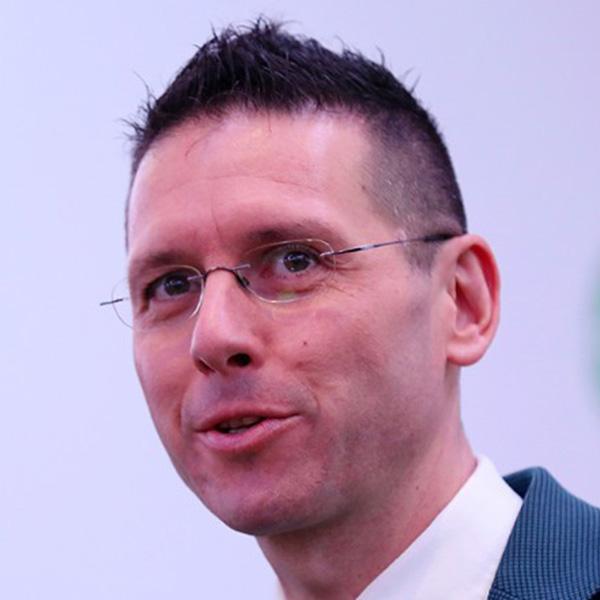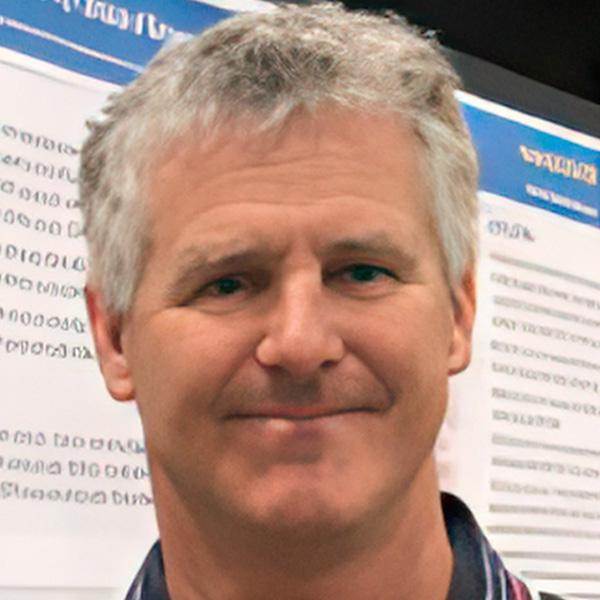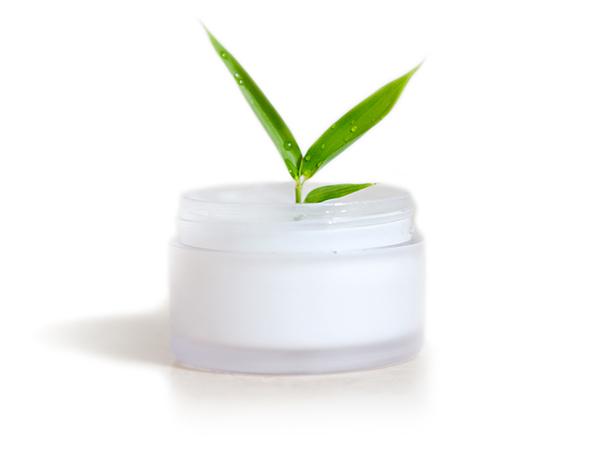Stay informed about the Joint 3R Symposium
Our 2025 Lecturers

Dr. Marlies Bergheim
Henkel, DE
Marlies Bergheim is an experienced environmental expert with extensive knowledge in assessing the environmental safety of chemicals. Currently serving as Senior Manager for Product Safety/Ecology at Henkel AG & Co. KGaA in Düsseldorf, her role encompasses a wide array of responsibilities. For example, she oversees environmental safety assessments for consumer product ingredients, coordinates ecotoxicity and fate studies, and ensures compliance with classification and labeling regulations.
Beyond her corporate role, she actively engages in various associations, including the International Collaboration of Cosmetics Safety (ICCS), the German Chemical Industry Association (VCI), Cosmetics Europe (CE), and the International Association for Soaps, Detergents, and Maintenance Products (A.I.S.E.). Furthermore, she has been appointed by the German Ministry of the Environment as an expert to two German committees: the German Committee for Trace Substances and the German Commission for the Evaluation of Substances Hazardous to Water. In these commitees, she makes an important contribution to environmental and chemical safety initiatives.
Marlies Bergheim is also the author of several publications addressing the fate and toxicity of chemicals in the environment, with a particular emphasis on the degradability of chemicals in the aquatic environmental compartment. Throughout her academic career, her work has been awarded through several academic fellowships.

Dr. Arnaud Boivin
L'Oréal, FR
Dr. Arnaud Boivin is currently working as the Environmental Exposure Modelling Lead at the L'Oréal R&I Environmental Safety International Department. His role involves assessing the environmental safety profile of cosmetic substances. He’s also contributing to the development of new assessment methods and tools for regulatory purposes, focusing on environmental fate, behavior, and exposure of cosmetic substances. Arnaud chairs the delivery team on exposure and fate of the International Collaboration on Cosmetics Safety (ICCS). Prior to his current role, Arnaud worked for 13 years at the French Agency for Food, Environmental and Occupational Health & Safety (ANSES). During this time, he also collaborated as an expert for the European Food Safety Agency (EFSA), contributing to the drafting of regulatory guidances on Environmental fate and modelling for plant protection products. Arnaud holds a Ph.D. in environmental science from the French National Research Institute for Agriculture, Food, and the Environment (INRAE) and was a post-doctoral researcher at the University of California, Riverside (UCR).

Dr. Aude Kienzler
European Food Safety Authority (EFSA), EU
Dr. Aude Kienzler is a scientific officer at the European Food Safety Authority (EFSA) since 2021. She has a background in agronomy and ecotoxicology and a PhD in environmental sciences. She started her career working a few years as a regulatory officer for plant protection products, before to start her PhD focusing on the development of genotoxicity biomarker in fish cell lines. She then moved to Italy where she has been living for the last 12 years, to work first at the Joint Research Center (JRC, ECVAM) as a scientific officer. At the JRC she was mainly interested in the development of alternative methods to animal testing for fish, mixture assessment methodology, and endocrine disruptors (ED) assessment methodology. She then moved to EFSA, in the ecotoxicology team of the PLANT Unit, where she is mainly involved in the peer review of the environmental risk assessment of pesticide active substances used in plant protection products, in close cooperation with EU Member States. Additionally, she is a co-author of the ECHA/EFSA ED guidance for pesticides and biocides and is involved in the assessment of the endocrine disrupting properties of pesticides on non-target organisms. She is also a member of the OECD’s Validation Management Group for ecotoxicological test guideline (VMGeco).

Dr. Laurent Lagadic
Bayer, DE
Laurent Lagadic holds a PhD in Fundamental Toxicology and worked for 20 years as an Aquatic Ecotoxicologist at the French National Institute for Agriculture Research (INRA, now INRAE) in Rennes, France where, as a Research Director, he led the Research Group on Ecotoxicology and Quality of Aquatic Environments for 12 years. In November 2014, he joined the Environmental Safety Division of Bayer CropScience in Monheim, Germany. He worked as a regulatory expert in aquatic ecotoxicology within the Environmental Effects Group for six years, being more specifically involved in the development of test methods for non-standard aquatic invertebrates and of testing strategies for evaluating potential endocrine-disrupting properties of pesticides and biocides in fish and amphibians. He joined the Environmental Safety Assessment and Strategy Team on November 1st, 2020, and currently leads Bayer´s strategy for the evaluation of potential endocrine-disrupting properties of these substances in aquatic organisms. More recently, he has been involved in various initiatives for reducing the use of animals in ecotoxicity testing. Laurent was appointed as a Bayer Senior Science Fellow in January 2020.

Dr. Floriane Larras
KREATiS, FR
Floriane Larras obtained her PhD in aquatic ecotoxicology in 2013 from the University of Savoie Mont Blanc, France. Over the next eight years, she gained experience as a post-doctoral fellow in different laboratories in France and Germany to tackle anthropic pressure on freshwater algal and macroinvertebrate communities from the transcriptomic to the taxonomic level. During this time, she used diverse modelling approaches and explored chemical European regulations. In 2022, she joined KREATiS where she is heavily involved in the development and the use of Quantitative Structure Activity Relationship (QSAR) models to support the reduction of animal testing for regulatory submissions. This work increases mechanistic understanding of the processes behind ecotoxicological endpoints. She is also involved in research projects aiming to predict the ecotoxicity of challenging compounds like pharmaceuticals, cosmetics and the biodegradation of single substances and mixtures.

Dr. Heike Laue
Givaudan, CH
Dr. Laue has been with Givaudan, a global flavors and fragrances company based in Switzerland, since 2009. She currently serves as the Head of Environmental Safety Sciences in the Regulatory and Product Safety (RAPS) Fragrance & Beauty Department. Her team conducts thorough assessments to ensure the environmental safety of fragrance ingredients, utilizing New Approach Methodologies (NAMs) as part of the risk assessment for new fragrance molecules and their registrations.
Dr. Laue is also involved with several associations, including the Health and Environmental Sciences Institute (HESI), the International Fragrance Association (IFRA), and the European Chemical Industry Council (CEFIC), to promote regulatory acceptance of alternative methods.
Before joining RAPS, she spent 15 years in Fragrances S&T at Givaudan, focusing on the development of in vitro methods for bioaccumulation and acute fish toxicity. Prior to that, she worked in a biotechnology company specializing in antimicrobial agents and as a post-doctoral researcher at the Danish Technical University and at Stony Brook University, New York. Dr. Laue earned her Ph.D. in 2000 from the University of Konstanz in Germany.

Dr. Adam David Lillicrap
NIVA, NO
Adam is the Research Manager for the section of Ecotoxicology and Risk Assessment which includes dedicated research scientists, PhD students and post-Doctoral scientists. He is also NIVA’s Test Facility Manager for Good Laboratory Practice (GLP) and has been project managing and study directing regulatory ecotoxicity tests according to GLP for over 20 years. Adam is a EUROTOX Registered Toxicologist (ERT) and is involved in numerous international committees and expert working groups. Adam is the Norwegian representative at the OECD validation management group for ecotoxicity test methods (VMGEco) and the Norwegian representative for ISO Water Quality test standards for biological methods. Adam has been very active in the field of animal alternatives for ecotoxicity testing, chairing many sessions at SETAC and currently chairs the SETAC global animal alternatives interest group. Adam has a thorough understanding of the regulatory complexities regarding the adoption of alternative test methods and the need for a weight of evidence approach to gain regulatory acceptance. Adams main interests involve understanding how chemicals are regulated within an environmental context, and how to influence policy making decisions for regulatory frameworks.

Dr. Andrea Maltagliati
EFfCI, IT
51 years old, brilliant communicator, eclectic, leader and team builder, has a technical background. A chemistry graduate from the University of Milan, he entered the cosmetics market more than 20 years ago.
He has gained experience from SMEs to multinationals, holding different roles in companies, from R&D lab to technical director, from sales manager to Business Development and Market Manager. He has gained experience both in the local/EU area and in the world market.
He has acquired knowledge of many classes of ingredients, just to name a few: emulsifiers, functional, surfactants, active...
The international experience he has accumulated over the years and the positioning of companies/ingredients in the world market has allowed him to sit at important discussion tables such as the International Association and EFfCI WGs.
He is currently Secretary General of EFfCI (European Federation for Cosmetic Ingredients) managing activities related to the needs of the EU ingredient industry, coordinates 10 WGs, defends the activity of the industry and represents it in all global institutional fora and in front of all stakeholders.

Dr. Amelie Ott
ICCS, US
Dr Amelie Ott is an experienced scientist and manager, leading international projects to assess the environmental safety of chemicals including cosmetics. She is currently the Director, Environmental Sciences at the International Collaboration on Cosmetics Safety (ICCS) where she is tasked with overseeing the strategic development and tactical management of their environmental science program. ICCS is a global, non-for-profit multi-stakeholder research organization dedicated to advancing animal-free safety assessments for cosmetics, covering human and environmental health.
Before this role, she worked at the European personal care trade association, Cosmetics Europe as an Environmental Sciences Manager and as a scientist at Newcastle University, co-leading the validation and standardization of a new biodegradation method. She also worked as a parliamentary researcher for the UK Parliament and as a scientific secretary consultant for the European Centre for Ecotoxicology and Toxicology of Chemicals (ECETOC). She is still a visiting researcher at Newcastle University, representing the UK in an OECD Expert Group. She is an active member of the Society of Environmental Toxicology and Chemistry (SETAC). She holds a Ph.D. in environmental engineering on emerging contaminants from Newcastle University.

Dr. Sascha Pawlowski
BASF, DE
Regulatory Ecotoxicologist, Department of Product Safety, Regulations, Toxicology and Ecology, BASF SE, Ludwigshafen, Germany
Diploma and PhD thesis in the field of Aquatic Ecotoxicology
Experienced ecotoxicologist for about 26 years, about 18 years of experience in Regulatory Ecotoxicology and Environmental Risk Assessment
Certified Ecotoxicologist according to SETAC GLP and GDCh (Gesellschaft Deutscher Chemiker - Society of German Chemists)
Being interested in the potential effect of cosmetic ingredients on the environment, he created the EcoSunPass, a user friendly tool to evaluate the environmental effects of UV filters, in particular on coral reefs.

Dr. Véronique Poulsen
L’Oréal, FR
Dr. Véronique Poulsen is a 25-year experienced ecotoxicologist. She first worked 10 years at INERIS (National Institute of Industrial Environment and Risks) in France as responsible for ecotoxicological laboratory test development and outdoor aquatic mesocosms. She then worked during 11 years at Anses (French Agency for Food, Environmental and Occupational Health Safety) as head of the Ecotoxicology and Environmental-fate Unit, in charge of the risk assessment of pesticides. She currently works at L’Oréal as Head of Environmental Safety. Her mission is, in the framework of worldwide regulations and taking account our consumers’ environmental concerns, to ensure that the ingredients used in L’Oréal’s formulated products are safe for the environment, based on dedicated testing and assessment strategies. She chairs the Core Science Team of the ICCS (International Cooperation of Cosmetics Safety), and chaired the Environmental Science Working Group at Cosmetics Europe (European Cosmetics trade association) between 2018 and 2024, the Science Committee of SETAC Europe (Society of Environmental Toxicology and Chemistry) between 2018 and 2024.

Dr. Gerald Renner
Cosmetics Europe, BE
Dr. Gerald Renner was born in Graz (Austria) in 1967. His basic scientific training is in engineering chemistry at the Technische Universität Graz, where he graduated in 1993. After that he specialised in biochemical engineering and worked for his PhD at the Technische Universität Graz, and the Ecole Polytechnique de Montréal. He finished his doctoral studies on the bacterial production of biodegradable plastics in 1996. After additional courses in animal cell culture techniques and immunology at the Université Libre de Bruxelles, he joined the Colipa (now Cosmetics Europe) Scientific department at the end of 1996. Since 2001 he is Cosmetic Europe’s Director of Technical Regulatory Affairs which includes since 2010 also the association s activities on international regulatory convergence.

Dr. Claudia Rivetti
Unilever, UK
Claudia is a highly motivated environmental safety scientist over 10 years’ experience across Academia and Industry. She holds a degree in Biological Sciences and a Ph.D. in Ecotoxicology and Stress Ecology, during which she focussed on the impact of a wide array of chemical substances on freshwater organisms and ecosystems.
She currently works at Unilever, where she supports environmental safety assurance of the company ingredient portfolio in their Safety and Environmental Assurance Centre (SEAC). Her main focus is in the Environmental New Approach Methodologies (NAMs)-based safety agenda and she also has an active role in several external scientific fora and trade associations.
Through these multiple activities, she is actively engaged in the accelerating the transition to enable Environmental Risk Assessment without animal testing and contributes to shaping the scientific landscape to achieve this goal through translation of science into policy, with the ultimate goal of delivering improved environmental safety.

Prof. Vera Rogiers
Vrije Universiteit Brussel, BE
After many years of leading the department of In Vitro Toxicology and Dermato-Cosmetology at the VUB in a successful way, Emeritus professor in Toxicology Vera Rogiers is actually still teaching dermato-cosmetics at the VUB and the University of Ghent. She also gives a limited number of lessons to the University of Namur. She yearly organizes international courses on Cosmetics and Risk Assessment. She is the Director of the Innovation Centre-3Rs (IC-3Rs) at the VUB and of the scientific Chair Mireille Aerens, both with focus on replacing experimental animals by novel technologies. At the EU level, she is co-chair of the Scientific Committee on Consumer Safety (SCCS) and member of the Mirror group of the European Partnership on Alternative Approaches to Animal Testing (EPAA). Her main research activity was many years situated in the development of in vitro models as an alternative to the use of experimental animals. Actual focus is on the differentiation of human skin-derived stem cells to functional hepatic cells and their application for drug discovery and the detection of drug-induced liver injury. She has been promoter of 33 doctoral theses, is author or co-author of >380 publications in international peer reviewed scientific journals and is editor of several scientific books. She is an often-invited speaker (>350) and participated in the organization of more than 60 international congresses. She has coordinated 2 EU research projects and was partner in several FP6, FP7 EU and Horizon 2020 research projects concerned with in vitro methodology development. Of the obtained scientific results, several patents have been filed. Throughout her carrier she received several international scientific awards for her pioneering role in in vitro Experimental Toxicology.

Dr. Gordon Sanders
Givaudan, CH
Education: BSc in Agricultural Chemistry (University of Glasgow), PhD in Environmental Sciences (Lancaster University).
Professional Experience: Plant Protection – Agricultural chemical companies and CROs – Residue testing, environmental fate, field study design and management. Fragrance Industry – Naturals sourcing for perfumery and flavours. Regulatory Affairs and Product Safety – Environment and ecotoxicology expert. Management of global testing, notification and advocacy (EU, USA, Japan, China), dossier preparation, environmental risk assessment, study monitoring, CRO audit, GLP lab management, interface with R&D on screening of new chemicals.
Areas of Expertise: Higher-tier environmental fate testing; Alternatives in aquatic toxicity and bioconcentration testing; Improving emission and exposure scenarios; Pre-empting future challenges.

Dr. Harald Streicher
Beiersdorf, DE
Harald is the Head of Environmental Safety at Beiersdorf, the global skin care company based in Hamburg, Germany. He holds a Ph.D. in Chemistry and is a certified Diplomate from the International Board of Environmental Risk Assessment IBERA. Harald is passionate about enabling conscious raw material decisions to ensure that cosmetic products do not pose a risk to the environment. He is committed to accelerating the world's transition to 100% animal-free testing and actively contributes to shaping the scientific landscape to achieve this goal. Harald has a proven track record of success in his role, and he is proud to be part of a team that is making a positive impact on the world.
